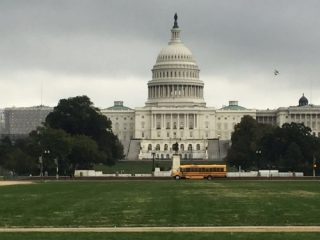Frieda Park looks at how right-wing forces are trying to turn back progress in Venezuela
It is no coincidence that Elliot Abrams has been appointed as Trump’s envoy to Venezuela. Abrams was involved in the Iran-Contra scandal in the 1980s when officials in the Reagan administration sold arms to Iran, in contravention of sanctions. They secretly used the proceeds to fund the right-wing Contras in Nicaragua who were waging an armed struggle against the elected Sandinista government. The destabilisation caused eventually led to the downfall of the Sandinistas. Job done, Abrams plead guilty to two counts of lying to Congress about the affair and was later pardoned. He was recently challenged by Democrat Congresswoman Ilhan Omar. She asked: ‘… would you support an armed faction within Venezuela that engages in war crimes, crimes against humanity or genocide if you believed they were serving US interests, as you did in El Salvador, Nicaragua and Guatemala?’ Abrams refused to answer.
The agenda is clear. Donald Trump has not found a soft spot for the human rights of the people of Venezuela – the US wants its oil. The National Assembly which appointed Juan Guaido as President has also named a new board of directors for the state oil company all of whom are currently based in the United States.
The big imperial powers have always hated Venezuela, whether the President was Maduro or Chavez. They hate it because it widened democracy by registering people to vote, making polling places accessible to all, setting up participative political structures and by defeating illiteracy. The Bolivarian Revolution has built houses, schools and hospitals and improved workers’ rights. It gave indigenous, black and mestizo Venezuelans their rightful place as equal citizens. To the white and the wealthy this was an abomination. To the United States, the growing ‘pink tide’ of Latin America became a threat to neo-liberalism in its own back yard. Venezuela was at the forefront of this, developing political and economic solidarity across the South. 
The US set about rolling back leftist gains across the continent, including supporting the coup in Honduras which overthrew the elected President in 2009. Long before the current difficulties emerged, it also supported the attempted coup against Hugo Chavez in 2002. Since then it has pumped tens of millions of dollars into supporting the right-wing opposition in Venezuela, an opposition which has organised violent protests involving killings and attacks on public buildings, including hospitals. More recently there have been attempts on the life of Maduro. The self-proclaimed interim President, Guaido, emerged from these right-wing movements. He has been recognised by a minority of countries, including his sponsor, the United States, The European Union, Britain and Israel.
The Venezuelan electoral system is one of the most transparent and robust in the world. It is not possible to rig it, as Jeremy Hunt suggested, by stuffing ballot boxes. The system is electronic, based on finger-print ID and votes are cross-checked against a paper print-off which electors place in ballot boxes after they have registered their votes. That the fractured opposition boycotted the Presidential election does not delegitimise it. That some of their leaders were in prison for inciting violence does not delegitimise it either.
The right did make advances in the elections to the National Assembly, but abused their power by, for example, swearing in representatives while results were being queried. Maduro has repeatedly called for talks with the opposition. However, the opposition’s objective is not peace but to overthrow the government and to roll back the gains of the Bolivarian Revolution.
That the right was successful, however, demonstrates the depth of problems which were beginning to emerge at that time. There were widespread abstentions by Chavista voters in those elections.
The situation in Venezuela is very bad – that isn’t made up though some things are and some are exaggerated. We see little of the pro-government demonstrations in our media.
There have been Issues with economic management, particularly a continued over-reliance on oil. The dramatic fall in its price had devastating consequences for the country.
Other significant problems have been caused by subsidies of oil and basic goods to make them affordable for the population. This led to widespread smuggling. Even back in 2017 it was estimated that 30-40% of food disappeared out the country illegally.
However, we would not be where we are without internal sabotage and external intervention. As well as actively supporting the violent, anti-democratic right, the US and the EU have increasingly applied economic sanctions against Venezuela, making it extremely difficult for the government to deal effectively with the problems in the country. The US has also threatened to invade.
The aim, as in Chile and Nicaragua, is to make life harder and harder for ordinary Venezuelans, to destabilise the economy and to undermine and overthrow the government. Further sanctions and seizures of assets will make things significantly worse. It will be difficult for Venezuela to trade and access finance.
There are two options for Venezuela – US sponsored destruction, chaos and regime-change or non-intervention and talks with the opposition. Jeremy Corbyn has stated his opposition to foreign intervention in Venezuela but there are Labour politicians who do not share that view. The SNP has aligned itself with the EU’s interference, dictating terms to Venezuela, though likewise not everyone in the SNP shares that position. So lobbying is important to avert another dangerous and misguided intervention which would cause devastation in Venezuela.
Frieda Park is the treasurer of the Scottish Venezuela Solidarity Campaign